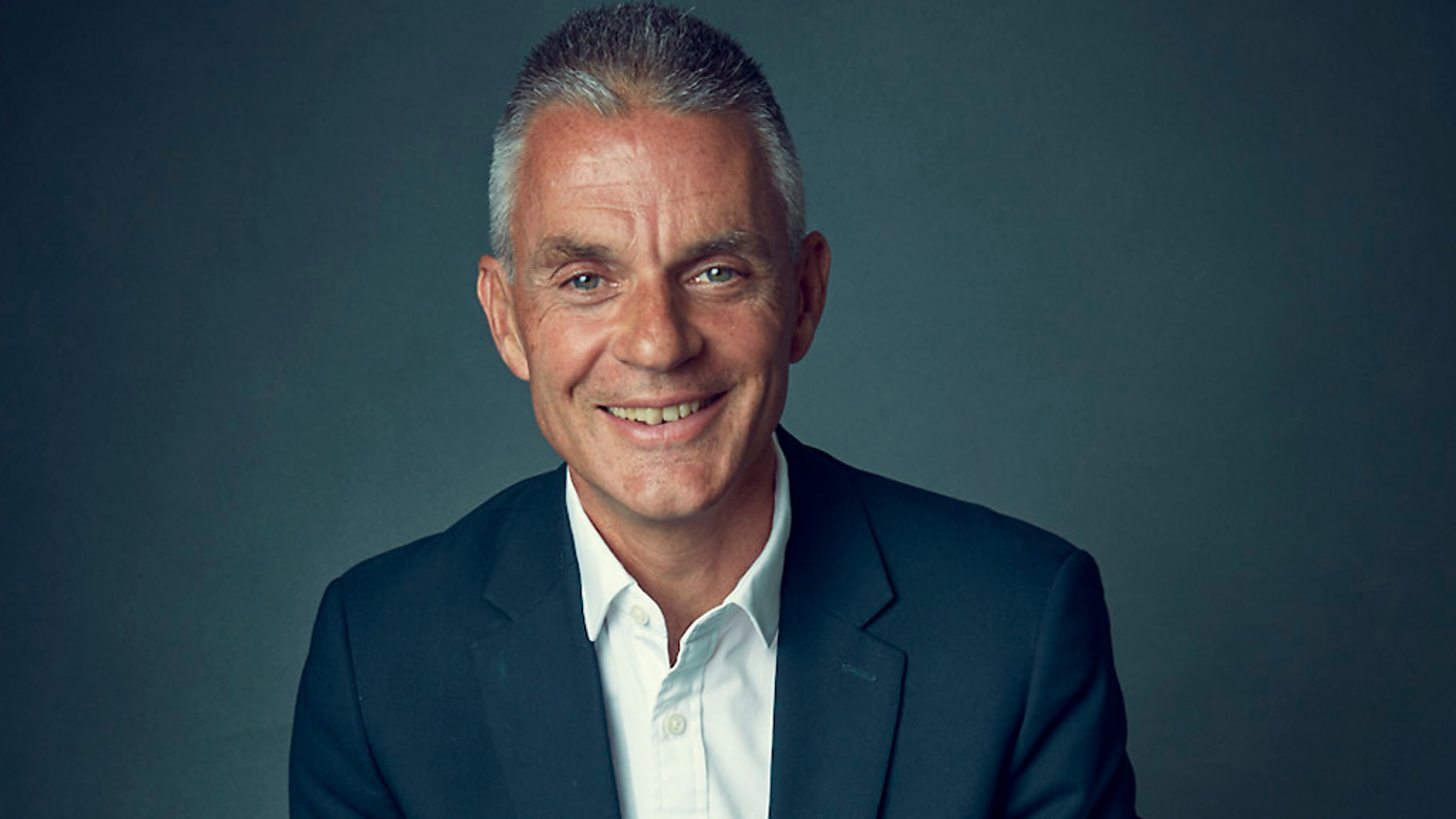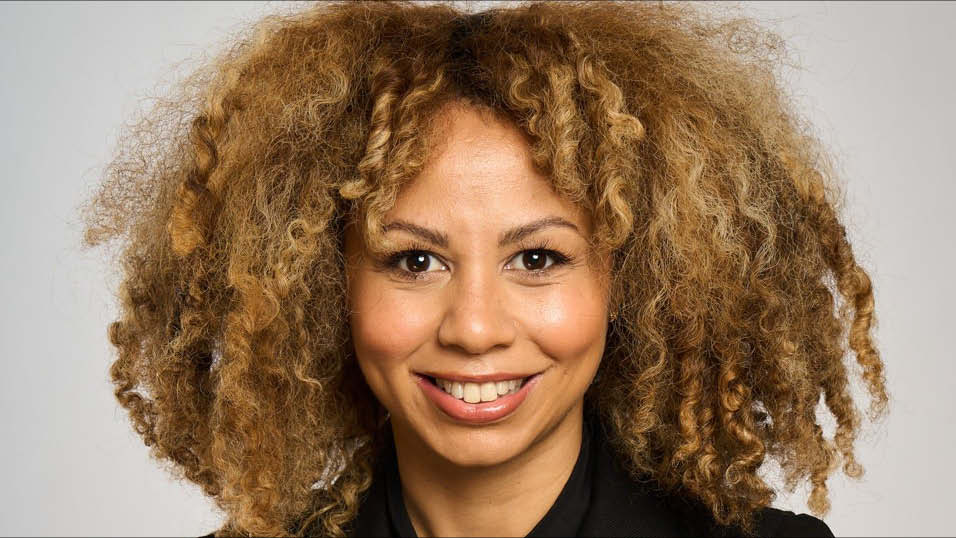BBC director general Tim Davie’s speech A BBC for the Future was delivered today, the 26th March, to the Royal Television Society. The following is the speech in full.
It’s nice to be back at the home of the BBC isn’t it? And what an incredible crowd. Good morning, everybody. Today I want to talk about us. The UK, our stories, our independence, our democracy, our media, our BBC, us.
18 months ago I made the case that the BBC needed to embrace, not get dragged into, the interactive age. Today, I want to go a little further and, in the second half of this Charter, lay out what we see as our unique role delivering the mission to Inform, Educate and Entertain in a new age. A choice to focus limited resources to best serve our audiences and our society.
It is a choice, for all of us, and the legacy we personally leave.
It is about backing a universal, independent public service, backing the UK, backing creative ambition, delivering significant reform and harnessing technical innovation to transform the value we provide to everyone. It is an ambitious plan not just to nurture the BBC but to support the UK, partnering with others and growing the creative industries. It is a plan that needs your backing … editorially and financially.
Now we stand at a significant moment. The jeopardy is high. The future of the UK, democratically, socially and culturally, is at risk. And for us to succeed, far from following where the market is driving others, we must double down on what audiences see as our unique value.
Now you know I count myself incredibly privileged to have lived most of my life in this country, in a democratic, peaceful society like no other. A place of unique wonders. A place where free speech thrives, where despite stresses and strains, and our unceasing self-flagellation, the values that hold us together still seem a little stronger than those that force us apart; where the best of humanity – kindness, humour, decency, tolerance – can win out, despite the threats. A place whose independent institutions are admired globally for their role in sustaining a civilised society.
Critically, as this building attests, none of this came about by accident. It was borne of deliberate intervention. Clear choices about not where markets or technology would take us but how we create an economically and creatively successful society. This success has never been about resisting change; it has been about shaping our destiny. Now is the time when we must make choices together to rapidly modernise and invest in precious institutions like the BBC, or they will wither.
Now the new world brings wonderful opportunities: global connectivity; rapid problem solving; increased transparency to name but a few.
But across the world there are trends that present significant threats to civil society: polarisation; noisy culture wars; disinformation; the persecution of the free press; the dramatic decline in free democracies.
Many business models rationally incentivise these forces because they drive better economic return, or more votes.
This should concern all of us. Many of my generation have had a very good run, but what are we leaving behind?
The social psychologist Jonathan Haidt talks about three major forces that bind together democracies – strong institutions, shared stories, and social capital – a pretty good list if you’re in my job by the way. But he argues that the social media landscape has weakened all three. It rewards division. It weakens political systems based on compromise. It stifles the constructive process of civil debate.
In this country, our independent public institutions have evolved to help hold democracy together. To preserve society’s equilibrium against the pull of extremes. Strong institutions foster a strong society – a virtuous cycle.
That is why, when I talk about backing our national institutions, it really is not simply to mount a self-interested defence of those institutions in and of themselves. It’s about intervening to provide their societal effects for future generations.
This will take reform, passion, money and vision. I am not exaggerating to say that our civil democratic society, admired across the planet, is at stake if we get things wrong.
So that takes me to the BBC.
There is a common refrain – one that even I have voiced in the past – that if the BBC did not exist we would not invent it. But as I look at the world today, I think I was wrong.
When I travel abroad, and see what others aspire to, there is almost universal admiration for what we have achieved. It is so precious, utterly unmatched. Not perfect, but trusted from Belfast to Boston, from Kendal to Kyiv.
Recently a politician said the BBC does not have a “God-given right to exist”. I agree.
We know we have no right to exist. Complacency, defensiveness and arrogance leaves institutions fatally distanced from those they serve.
The good news is that, despite the historical criticisms of the BBC as slow- moving, it really has a proven record of reshaping itself over a whole century to stay relevant through major industry changes. From the birth of TV to the first steps into the digital world. From Ceefax, BBC Micro (remember those?), digital switchover, DAB, iPlayer. We have helped lead, and shape change – for public good.
Now we must transform ourselves again to increase relevance in a time of limitless choice and interactivity.
This will not be easy. Changes in audience behaviour present deep challenges to all legacy business models, and we are not immune from that. This pressure is exacerbated by financial challenges that have built up over years, creating limited ability to deploy capital to fund long-term growth, and the need to deliver major savings and trade-offs while we migrate from a broadcast to an on- demand organisation.
In some ways our strong audience and business performance continues to defy gravity and speaks to the excellence of our teams. Think Happy Valley, Blue Lights, Planet Earth 3, The Traitors, record profits for BBC Studios, the outstanding growth of iPlayer and BBC Sounds, solid audience numbers… I could go on.
Let’s not forget: the BBC is still the UK’s number 1 media brand. Nearly 9 out of 10 adults come to us per week and practically everyone, every month. The British public spend more time with BBC TV and iPlayer than all the big streamers combined. And we carry the UK’s voice, values, and influence to a weekly audience of nearly 450 million people worldwide.
But we are deeply impacted by the forces reshaping the market and creating huge disruption to traditional broadcast-based organisations. And it’s not just the future of the BBC and the public service broadcasters that are at stake, it’s the future of our wider creative industries. A world-class success story, but one we can’t afford to take for granted.
So what is the role of the BBC amidst the noise? How do we grow our value to all audiences in the new AI age?
We want to focus on what we provide that is not just different to others but is, by virtue of our public service mission, the very opposite of where many commercial players are heading.Our mission will always be to inform, educate, and entertain. But what does that mean in today’s society – right now.
We have been listening to audiences and examining societal trends to identify our role in this future landscape. That work tells us three essential roles that we can play for our democracy, our creative economy, and our society; roles which can make the impact of the BBC more, not less, precious. Roles that are driven by audience need, not simply by commercial market forces. Our plan is to focus our resources on these roles. They are:
– Pursue truth with no agenda
– Back British storytelling … and
– Bring people together
Let’s have a look at these in a bit more detail. Firstly, to pursue truth with no agenda
We now live in a world, and this is shocking by the way, where over 70% of countries do not have a free press. It’s shocking, on our watch. Where hostile states, and we’ve seen a bit this week, are weaponizing disinformation and using AI for democratic disruption. Where algorithms monetise controversy, driven, understandably, by the necessity to secure traffic as an overriding commercial objective. Where, in markets like the US, the most polarising news networks have driven growth.
Should we accept that it is inevitable that our media sector will become a smaller version of America? Deep polarisation anyone? Or do we want to fight for something that is about us and for us … the best of us. For something that is proven to help underpin democracy itself.
The BBC believes in the fearless pursuit of truth, anchored by the facts, with no political agenda. I set impartiality as our number one priority on taking this job – and of course it’s been plain sailing ever since! Let’s not go there. But it was the right decision for the organisation and we need to hold our nerve amidst the storm.
And if we think the UK environment is challenging. We have seen journalists expelled from China and Russia, and only last month we found out that colleagues in BBC Persian, shockingly, have been convicted by the Iranian authorities simply for doing their job. We must stand together against this.
We must remain committed to holding our centre of gravity, staying true to our values. Not as a dry, soulless choice, but an energetic pursuit of truth.
Let me give you a few examples.
In News, we will, of course, continue to focus on journalism of the very highest standards and never wave from our Reithian mission; everything is secondary to that. But we will accelerate work to ensure people can understand the facts and get an impartial assessment of the news – using technology and algorithms for good. Also we want to make it clearer to people what we have to offer.
We will double-down on multi-media brands like BBC Verify and deploy it globally. We will launch two new brands. Firstly a new digital destination that will offer deeper analysis, longer reads and thought-provoking journalism which provide more context beyond rolling news. Also, to help audiences navigate our investigative journalism, we will create a BBC investigations brand where people can find all our content in one place.
To support this, we are currently launching a new network of over 70 multi-media investigative reporters across our local bases in England. It’s part of a major strengthening of our local news offer digitally, recruiting an additional 130 journalists and placing local and nations news at the heart of the BBC News app, on the homepage for the first time – which is already driving impressive growth.
We will proactively deploy AI on our terms, always holding on to our published principles. Never compromising human creative control, supporting rights holders and sustaining our editorial standards, but proactively launching tools that help us build relevance. We are now working with a number of major tech companies on BBC-specific pilots which we will be deploying the most promising ones in coming months.
Our ambition is significant. We want to increase fact-checking of sources, use translation and reformatting technology to take our best content across media and languages. And in areas like BBC education we want to offer more tailored learning on services like Bitesize.
Supporting this, we are developing unique ethical algorithms that dramatically increase personalisation but are not simply driven by the narrowing of an individual’s recommendations. We want to keep other factors in play like serendipity (think the average Radio 4 day); curiosity; and an interest in what our BBC editors may judge to be important stories.
Of course, alongside this, we will actively grow our services and content on social platforms. But our primary aim will be to incentivise audiences to come to the BBC where we can guarantee provenance.
Also, with the backing of BBC Studios, we will invest in stronger direct-to- consumer services globally, including relaunching bbc.com and the BBC app internationally, with appropriate commercialisation. This will build our position as the number one English online news brand online, globally. Over time we will look at adding the best of our documentaries and podcasts to that service.
Now our second role, as I mentioned, as the BBC will be to back the best British storytelling.
Our creative industries are a growing £125 billion success story based on a unique, globally admired system of public and commercial investment that has profited society and the UK balance sheet. But in a competitive global market, the pressure on huge international businesses to deliver efficiency creates genuine jeopardy for local IP and the telling of our stories.
Now these are the stories that UK audiences value the most. In 2023, of the top 10 most viewed programmes 100% of those stories were UK stories, 70% from the BBC. They celebrate our world-leading culture and creativity, and they document the differences that make each of our nations and communities special. Yes, in the internet we are all, exhaustingly, global citizens, but I do not want to give up on our stories.
On global streamers, a minority of the offer is UK content. This is not a criticism – they are very impressive companies that make many good shows. But there is no doubt that global economic models drive you to a different place, editorially, from a UK player.
The BBC currently invests more in original British content than anyone. No one does more to champion new talent from every part of the UK. Without us, without the public service broadcasters, the scale and scope of that spending on British stories would quite simply not be replaced. The licence fee supports 14,000 external creative companies, with 50% of the economic impact outside London.
The BBC is a growth and innovation fund for the UK and we want to do even more to back British storytelling.
This is not an insular strategy. We are a global brand. But as someone who ran BBC Studios, I can tell you that our most successful approach is to focus on our point of difference: authentic British stories produced beautifully, not worrying too much about an abstract notion of global appeal.
So what does that look like in terms of our offer to audiences?
In the UK, our commissioning will be focussed on harnessing the very best creative talent from right across the UK.
We will continue to shift significant amounts of content production, more editorial leadership, and decision-making, away from London. More than 60% of our TV production will be outside London by 2026, and 50% of our radio and music by 2027.
We will build on our successful work of forming major partnerships with regional and national bodies. It is not just about BBC departments moving but about shifting 100s of millions of pounds which flow into the wider economy. We have no desire to create BBC islands but rather to act as a catalyst, as benign venture capital. If the 12% GVA represented by the creative industries in London was replicated elsewhere we would double the value of the sector, it’s amazing. The BBC can be a major driver in closing the gap.
For instance, we will deliver projects such as our new hub in Digbeth, and we’re working with writer Steven Knight and his Digbeth loc studio relocating strands like MasterChef. We will also continue to relocate programmes such as News at One to Salford which complements the work we have done on locating network News teams across the UK. We will build on our work in the Nations and Regions, supporting initiatives such as the recently announced Northern Corridor growth plan.
Critically, within the BBC, you can now build a career through to a very senior level… such as a Network News Editor… without even coming to London.
Linked to this, we will work very hard to keep opening up the organisation and the industry to all, which remains a big issue. We are setting a lead with our Lower Socio-Economic target of 25% of the organisation and, despite significant pressure on costs, will continue our target of hiring 1,000 apprentices, which bring a lot of joy by the way.
We will simplify and strengthen all our talent schemes such as BBC Introducing and build one of the world’s most ambitious and biggest media talent development programmes. That means doing even more to find and champion creative potential and offer clear routes to performing on the Pyramid stage or writing a prime-time drama.
Our third and final role, will be a focus on bringing people together.
All of us are increasingly consuming global content on platforms driven by algorithms that create the most commercially-potent relationship with a customer. These algorithms can create a very narrow version of personalisation, threatening social cohesion.
In this world, shared moments and common cultural experiences are becoming more, not less, precious. People are increasingly drawn to those communal moments, to places where they find hope and joy, where they are able to have a civil discussion, where they can laugh together, not defined solely by political beliefs or by their online purchase history.
As we move to an internet-only world, we can shape this tipping point to act for the benefit of the British public. We can choose not to rely solely on US and Chinese tech companies who may not have the interests of a shared British culture and our democratic, tolerant society at their heart. This will require us to create unique algorithms to serve our values, for good. Algorithms and AI that bring us closer, not drive us apart. Personalisation, of course, but not driven by a narrow commercial return.
So what does bringing people together look like for audiences?
Of course, it means that we will, despite budget pressures, prioritise big national occasions – from the Coronation, Eurovision, the Proms and Glastonbury, to the Olympics and the Euros, or Strictly or Gladiators, Children in Need or even that great drama: Election Night.
Linked to this, we will be expanding and improving our live offer as something that sets us apart. So you will see much more livestreams and content on our services allowing you to connect communally to shared experiences in real time.
We will build the BBC as a place where more people can come together to debate and share views constructively. In the forthcoming local elections, we will for the first time host mayoral debates in every combined authority and expand our Hot Seat feature on local radio where leaders are held to account by the public.
And we are also making significant changes to BBC online.
We will create a fully integrated and sensibly personalised service that allows us to connect up the BBC rather than simply offering it up as a set of different products. This involves a dramatic change in how the BBC works.
We have done very well, I’m a loaded witness, on limited resources, to be one of the only non-US media companies to have scale in video through iPlayer, and audio via Sounds, alongside market-leading Sport, Weather and News services. But we have not fully unlocked the power of this multimedia offer to audiences. A BBC of the future will complete the journey from a broadcaster-controlled to a more audience-controlled future.
With this in mind, we have been undertaking a total rewiring of the data and “horizontal” systems such as Search that underpin our online offer. In the future BBC, you will be able to move across the content seamlessly, not limited by media type. If you are interested in a topic you should be able to easily mine the whole BBC, from archives to live output, audio/video World Service Local.
We have already rapidly built to over 20 million UK weekly accounts in the last few years, and we want to push on to ensure a minimum of 70% of adults are getting this value online weekly.
Finally, bringing people together means making sure no one is left behind in the digital transition.
This spring we’re on track to launch, alongside other public services, a free TV service – Freely – to deliver live TV over broadband.
Beyond this, we intend to use technology to step-change the accessibility of our content, another exciting area for new technology. We want to be a world leader, setting new standards in supporting people with disabilities. There is significant potential and we are looking at ideas such as how we could offer automatic subtitles on all podcasts to help those who are hearing impaired, or transform the range of our audio descriptions, there’s actually loads of possibilities here.
All of the above represents an ambitious plan of innovation focussed on three clear roles for the BBC:
• Pursue truth with no agenda
• Back British storytelling
• Bring people together
But, before I close, I want to deal with the obvious elephant in the room – which is the money.
Specifically, what will we be doing in the short term to fund change and cope with budget pressures. And what do we need to do make sure we make the right choices to fund a universal public service broadcaster longer term.
Below inflationary settlements have chipped away at our income over many years and have put serious pressure on our finances. At least we now have an inflation- linked agreement until the end of the Charter, which is good news. But this comes on the back of a 30% cut in real terms between 2010 and 2020, and a tough couple of years of flat funding.
This is particularly problematic as a strong balance sheet and the ability to deploy capital strategically is essential if we are to navigate digital transition. To strip money from the BBC during this period has been particularly short-sighted.
This has led us to deploy very significant reforms and cuts in the last three years in order to preserve value for licence fee payers. Reducing our public service headcount by over 1800, cutting over 1000 hours of content including many loved programme titles. Confronting trade-offs like creating a single News Channel operation and driving commercial income hard.
In future we must continue to be highly active in attracting investment and redeploying money internally as well as making savings.
Firstly we will utilise commercial partners much more actively in areas like programming and technology to increase our horsepower. Our recent deal with Disney on Doctor Who is a good example of how we can work to deliver more value through third-party funding, while protecting content for UK audiences. Also, we will need to work more strategically with the best tech companies to co- create solutions and form business partnerships that save money, inject capital and create better products.
We will also continue to aggressively grow BBC Studios internationally, building our production capabilities and direct-to-consumer services like bbc.com and now the wholly owned BritBox. We aim to double Studios in five years to deliver over £3.2 billion in revenues by 2027/28. We will move more areas into BBC Studios where there is a competitive market for talent and it does not negatively impact services in the UK. After moving some of BBC Audio production this year, we are now evaluating areas such as BBC Monitoring.
We will continue to create a leaner, more agile public service BBC.
We are already well on our way, and nearly done, in delivering £500 million of annual savings to fund digital investments and cope with historic licence fee settlements. We are now working on plans for a further £200 million which will be primarily deployed on ensuring we can deliver enough impactful content and ensure investment in digital products.
As part of this, we will accelerate our content spend towards streaming value and away from broadcast-only output. We will deliver more value for younger audiences by focusing all our commissioning, marketing and social media activity on BBC iPlayer rather than through BBC Three’s linear channel.
One area that we will discuss with government is the World Service. It is uniquely valuable and globally important, particularly in light of the trends that I talked about earlier.
However, we cannot keep asking UK Licence Fee payers to invest in it when we face cuts to UK services. We will need to discuss a long-term funding solution for the World Service that comes from central government budgets. Even in the short-term we will need more help. Russia and China are investing hard, and not properly funding one of the UK’s most valuable soft power assets makes no sense economically or culturally.
Finally, what of the Licence Fee?
Of course, the first order question is: how can we best secure all the benefits of universal public service broadcasting – for our democracy, our creative economy, and our society? I often think people discuss funding in the abstract without linking it to the content it would provide. Any commercialisation inevitably shapes the editorial content that it funds.
There is no doubt that the market has changed hugely since the licence fee was introduced. And I think it is right to ask fundamental questions about its longevity in a world that is now full of choice.
But we should be appropriately cautious about unpicking a multi-genre BBC that leads the market rather than is simply about market failure. We should not create another commercial walled garden or a narrow BBC that provides a niche service for the most hardcore users. The very wonder of the BBC is that quality news sits next to genres such as drama and sport thus ensuring widespread usage. This is a precious ecosystem. And we already have a hybrid BBC in the UK as we monetise our archive on platforms such as UKTV.
However, we are not defensive about the future. We will need reform.
With that in mind, we will proactively research how to reform the licence fee post-2028 – looking at its scope, how it could be more progressive, and making sure its enforcement is fair and proportionate.
Of course, as part of this, we will engage with the work being done by the Government to review BBC funding.
But, as ever, our most important relationship is with our owners, the UK public.
So starting next year, and well ahead of the new Charter, we will open up our biggest-ever consultation process so that the public can inform and drive the debate on the future BBC. Our aim is to make contact and get feedback from hundreds of thousands of people, and we do so with an open mind.
In conclusion…
I talked about this being a moment of choice. Back when the BBC began, John Reith could have chosen to chase the money and form a commercial radio business, and make a good living flogging people wirelesses. But instead, as a country, we recognised the incredible power of this new communications tool, and we made a choice to harness it in the public interest by establishing an independent, universal BBC.
Today a new wave of technological change is reshaping our media landscape at extraordinary speed. It’s bringing fresh challenges for our democracy, our creative economy, and our society. It’s time to make a choice once again, to decide to intervene.
To stand up and champion for the UK and all of us, to serve. Not to accept that only the forces of the global market will prevail. To champion an institution that is admired worldwide and is needed more now than ever.
Not simply defending the BBC but fighting for what it makes us.
To pursue truth with no agenda; to back British storytelling; to bring us together.
To act with urgency, to shape this new era of rapid technological change for the good of all, and for the UK as a whole.
Thank you.
Pippa Considine
Share this story
















